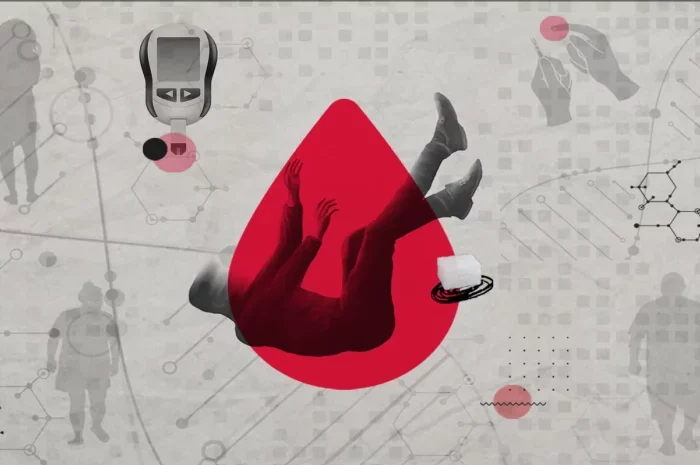Type 1 diabetes, often referred to as juvenile diabetes due to its common onset in childhood or adolescence, is a chronic autoimmune condition characterized by the destruction of insulin-producing beta cells in the pancreas. Unlike type 2 diabetes, which is largely influenced by lifestyle factors and is associated with insulin resistance, type 1 diabetes is primarily an autoimmune disorder with complex genetic and environmental components. This article aims to provide a comprehensive overview of the causes of type 1 juvenile diabetes, exploring its underlying mechanisms, risk factors, and the latest research advancements.
Autoimmune Mechanisms
The Role of Autoimmunity
Type 1 diabetes is fundamentally an autoimmune disease where the body’s immune system mistakenly attacks and destroys the insulin-producing beta cells in the pancreas. This autoimmune attack leads to a lack of insulin production, resulting in elevated blood glucose levels.
Immune System Dysfunction: The immune system normally protects the body from pathogens and foreign substances. In type 1 diabetes, this system becomes dysregulated and targets pancreatic beta cells as if they were foreign invaders.
Autoantibodies: Specific autoantibodies are often present in individuals with type 1 diabetes. These include anti-GAD (glutamic acid decarboxylase), anti-IA-2 (insulinoma-associated antigen 2), and anti-insulin antibodies. The presence of these autoantibodies can indicate an autoimmune process against pancreatic beta cells.
Genetic Predisposition
Genetics play a crucial role in predisposing individuals to type 1 diabetes. However, the genetic factors involved are complex and interact with environmental triggers.
Genetic Risk Factors: Certain genes are associated with an increased risk of developing type 1 diabetes. The most significant of these are the HLA (human leukocyte antigen) genes, particularly the HLA-DR and HLA-DQ genes. Variants in these genes affect the immune system’s ability to distinguish between self and non-self antigens.
Genetic Variability: While having a family history of type 1 diabetes increases risk, most individuals with the condition do not have a family history, suggesting that genetic predisposition is not solely responsible but interacts with other factors.
Environmental Triggers
Viral Infections
Viral infections are thought to play a significant role in triggering the autoimmune response that leads to type 1 diabetes. Certain viruses may initiate or exacerbate the autoimmune destruction of beta cells.
Possible Viral Agents: Viruses such as enteroviruses (e.g., coxsackievirus) have been implicated in the development of type 1 diabetes. These viruses can infect pancreatic cells and may trigger an immune response that damages beta cells.
Molecular Mimicry: One theory is that viral infections can lead to molecular mimicry, where viral proteins resemble pancreatic beta-cell proteins. This similarity may cause the immune system to mistakenly target beta cells.
Dietary Factors
Certain dietary factors during infancy and early childhood have been studied for their potential influence on the development of type 1 diabetes.
Cow’s Milk Protein: Some studies suggest that exposure to cow’s milk protein during infancy may be associated with an increased risk of type 1 diabetes. This is thought to occur through an autoimmune response triggered by the milk protein.
Vitamin D Deficiency: There is evidence to suggest that vitamin D deficiency might play a role in the development of type 1 diabetes. Vitamin D is believed to influence immune system function, and deficiency may impair the body’s ability to regulate immune responses.
Hygiene Hypothesis
The hygiene hypothesis posits that a lack of early childhood exposure to infections and microbes may contribute to the development of autoimmune diseases, including type 1 diabetes.
Immune System Development: According to this hypothesis, the immune system requires exposure to a variety of pathogens to develop properly. Reduced exposure due to overly clean environments may lead to an increased risk of autoimmune conditions.
Supporting Evidence: Some studies have suggested that children who grow up in overly sanitized environments or who have fewer siblings (and thus less exposure to infections) may have a higher risk of developing type 1 diabetes.
Genetic and Environmental Interactions
Gene-Environment Interactions
The development of type 1 diabetes is likely the result of complex interactions between genetic predisposition and environmental factors. These interactions can influence the onset and progression of the disease.
Genetic Susceptibility: While specific genetic factors increase susceptibility, the presence of these genes alone does not guarantee the development of type 1 diabetes. Environmental triggers are necessary to initiate the autoimmune process.
Environmental Modifiers: Environmental factors, such as viral infections or dietary elements, can modify the risk associated with genetic predisposition. Understanding these interactions is crucial for identifying potential preventive measures.
The Development of Autoimmunity
The process leading to type 1 diabetes typically involves the gradual destruction of beta cells over time. The autoimmune response may begin years before the onset of clinical symptoms.
Preclinical Phase: During the preclinical phase, autoantibodies may be present, and beta cell function may be compromised before symptoms appear. Regular monitoring and early detection in high-risk individuals can help identify the disease before it progresses.
Onset of Symptoms: The transition from preclinical autoimmunity to clinical type 1 diabetes involves a significant loss of beta cell function. This results in the classic symptoms of hyperglycemia, including frequent urination, excessive thirst, and weight loss.
Research and Advances
Ongoing Research
Research into the causes of type 1 diabetes is ongoing, with efforts focused on understanding the disease mechanisms and identifying potential preventive strategies.
Immunotherapy: Researchers are exploring various immunotherapy approaches to target and modulate the autoimmune response. These therapies aim to preserve beta cell function and prevent or delay the onset of type 1 diabetes.
Genetic Studies: Advances in genetic research are providing insights into the complex interactions between genes and environmental factors. Identifying new genetic markers and understanding their role in disease development can help in developing targeted interventions.
Preventive Strategies
While there is currently no cure for type 1 diabetes, preventive strategies are being explored to reduce the risk of developing the condition.
Autoantibody Screening: Screening individuals with a family history of type 1 diabetes for autoantibodies can help identify those at high risk. Early intervention and monitoring can potentially delay or prevent the onset of the disease.
Lifestyle Modifications: Encouraging healthy lifestyle practices, such as a balanced diet and regular physical activity, may help modulate immune function and reduce the risk of autoimmune diseases.
Clinical Implications
Early Detection and Monitoring
Early detection and monitoring are crucial for managing type 1 diabetes and improving outcomes.
Regular Check-Ups: For individuals with a family history of type 1 diabetes or those identified as at high risk, regular check-ups and monitoring of blood glucose levels can help in early detection and timely intervention.
Education and Support: Providing education and support to families and individuals diagnosed with type 1 diabetes is essential for effective disease management and improving quality of life.
Management and Treatment
Effective management of type 1 diabetes involves a comprehensive approach, including insulin therapy, blood glucose monitoring, and lifestyle adjustments.
Insulin Therapy: Individuals with type 1 diabetes require lifelong insulin therapy to maintain blood glucose control. Advances in insulin delivery systems, such as insulin pumps and continuous glucose monitors, are improving management outcomes.
Supportive Care: Emotional and psychological support, along with education on disease management, is crucial for individuals with type 1 diabetes and their families.
See also: What Causes Blood Sugar To Drop In Non Diabetics
Conclusion
Understanding the causes of type 1 juvenile diabetes involves exploring a complex interplay of genetic, environmental, and autoimmune factors. While the exact mechanisms remain an area of active research, it is clear that both genetic predisposition and environmental triggers contribute to the development of the condition.
Continued research into the autoimmune processes, genetic susceptibility, and environmental influences will be essential for developing effective preventive strategies and treatments. Early detection, comprehensive management, and ongoing support are vital for improving the quality of life for individuals with type 1 diabetes. Through a combination of scientific advancements and practical interventions, it is possible to enhance our understanding of type 1 diabetes and work towards better outcomes for those affected by this chronic condition.
Related topics:



























